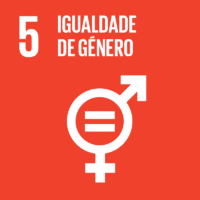Ciência_Iscte
Publicações
Descrição Detalhada da Publicação
The construction of knowledge in post-colonial societies: identity and education over three generations in Mozambique
Web of Science®
Esta publicação não está indexada na Web of Science®
Scopus
Esta publicação não está indexada na Scopus
Google Scholar
Esta publicação não está indexada no Google Scholar
Esta publicação não está indexada no Overton
Abstract/Resumo
This thesis focuses on the construction of knowledge in the education system in postcolonial Mozambique over three generations of students and how this has impacted on
their personal and social identity. The students have a schooling journey from primary
education until university in post-colonial Mozambique, a former Portuguese colony
that achieved independence in 1975. Each generation is linked to a specific political and
ideological period in Mozambique (i.e. 1st generation and Marxism-Leninism or
Socialism; 2nd generation and Democracy; and 3rd generation and Global Capitalism or
Neo-Liberalism) sharing common experiences and a social memory about the Civil War
(1976-1992). Three generations of students in post-colonial societies is underresearched.
In order to understand the links between identity and education in post-colonial
Mozambique, the processes of knowledge and identity construction are debated in
relation to culture as a semantic space. Culture as a semantic space is understood
through the everyday life practices and forms of resistance developed by the students
inside and outside school environments. In that sense, the spaces of identity and
education are addressed critically, knowing that the narratives of education are the
outcome of formal (school) and informal (culture) settings. School is addressed in this
research through the theories of inequality.
The spaces of identity and education are complemented with the particular cultural and
historical context and historical constrains that impacted upon each generation, such as
the Portuguese colonial period, post-colonialism and modernity, globalization trends in
contemporary Mozambique and the education system in Mozambique over the three
generations of students.
A qualitative methodology grounded in the epistemological position of constructivism
was used, and an ethnographic, life history narrative approach adopted. The data
analysis of the 18 life histories collected in 2013, complemented with ethnographic
techniques, have the purpose of understanding how the three generations define their
multiple identities, and if education experiences changed their personal and social
identity.
The major findings presented are the following: (i) students as ‘critical thinkers’ linked
with the socialist pedagogy (1st generation); (ii) formal education has meaning but only
because it is the symbol of employment; (iii) the 3rd generation, youngest generation,
defend an authoritarian style of teaching and learning; (iv) the centrality of the extended
family linked with informal education in the narratives of the three generations; and
finally, (v) what seems to appear as a probable trend for the future of education in
Mozambique, and probably extended to other contexts of neo-liberal politics, is that the
youngest generation does not understand the need for the kind of knowledge that school
is transmitting nowadays, a ‘profitable’ knowledge.
Agradecimentos/Acknowledgements
To the participants, three generations of Mozambicans from socialism to neoliberalism; University of Brighton for the doctoral research studentship; my supervisors, Professor David Stephens and Dr Carol Robinson; and Linda Mcveigh
Palavras-chave
Mozambique,Generations,Identity,Memory,ethnography
Classificação Fields of Science and Technology
- Ciências da Educação - Ciências Sociais
- Antropologia - Ciências Sociais
Registos de financiamentos
| Referência de financiamento | Entidade Financiadora |
|---|---|
| Doctoral Researcher Studentship (UoB grant), 2012/2016 | University of Brighton |
Contribuições para os Objetivos do Desenvolvimento Sustentável das Nações Unidas
Com o objetivo de aumentar a investigação direcionada para o cumprimento dos Objetivos do Desenvolvimento Sustentável para 2030 das Nações Unidas, é disponibilizada no Ciência_Iscte a possibilidade de associação, quando aplicável, dos artigos científicos aos Objetivos do Desenvolvimento Sustentável. Estes são os Objetivos do Desenvolvimento Sustentável identificados pelo(s) autor(es) para esta publicação. Para uma informação detalhada dos Objetivos do Desenvolvimento Sustentável, clique aqui.

 English
English




